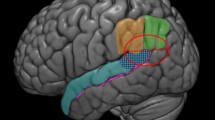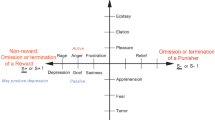Abstract
The ability to restrain a prepotent response in favor of a more adaptive behavior, or to exert inhibitory control, has been used as a measure of a species’ cognitive abilities. Inhibitory control defines a spectrum of behaviors varying in complexity, ranging from self-control to motoric self-regulation. Several factors underlying inhibitory control have been identified, however, the influence of neophobia (i.e., aversion to novelty) on inhibitory control has not received much attention. Neophobia is known to affect complex cognitive abilities, but whether neophobia also influences more basic cognitive abilities, such as motoric self-regulation, has received less attention. Further, it remains unclear whether an individual’s response to novelty is consistent across different paradigms purported to assess neophobia. We tested two North American corvid species, black-billed magpies (Pica hudsonia) and California scrub jays (Aphelocoma californica) using two well-established neophobia paradigms to assess response stability between contexts. We then evaluated neophobia scores against the number of trials needed to learn a motoric self-regulation task, as well as subsequent task performance. Neophobia scores did not correlate across paradigms, nor did the responses during either paradigm account for motoric self-regulation performance.





Similar content being viewed by others
References
Audet J, Ducatez S, Lefebvre L (2015) The town bird and the country bird: problem solving and immunocompetence vary with urbanization. Behav Ecol 27(2):637–644. https://doi.org/10.1093/beheco/arv201
Bates D, Maechler M, Bolker B, Walker S (2015) Fitting linear mixed-effects models using lme4. J Stat Soft 67:1–48. https://doi.org/10.18637/jss.v067.i01
Beran MJ (2015) The comparative science of self-control: What are we talking about? Front Psychol 6:51. https://doi.org/10.3389/fpsyg.2015.00051
Boogert N, Anderson RC, Peters S, Searcy WA, Nowicki S (2011) Song repertoire size in male song sparrows correlate with detour reaching, but not with other cognitive measures. Anim Behav 81:1209–1216. https://doi.org/10.1016/j.anbehav.2011.03.004
Diamond A (1990) Developmental time course in human infants and infant monkeys, and the neural bases of, inhibitory control in reaching. Ann N Y Acad Sci 608:637–676. https://doi.org/10.1111/j.1749-6632.1990.tb48913.x
Emery NJ, Clayton NS (2004) The mentality of crows: Convergent evolution of intelligence in corvids and apes. Science 306(5703):1903–1907. https://doi.org/10.1126/science.1098410
Ercan I, Yazici B, Sigirli D, Ediz B, Kan I (2007) Examining cronbach alpha, theta, omega reliability coefficients according to sample size. J Mod Appl Stat Methods 6(1):291–303. https://doi.org/10.22237/jmasm/1177993560
Fox RA, Ladage LD, Roth TC, Pravosudov VV (2009) Behavioural profile predicts dominance status in mountain chickadees, Poecile gambeli. Anim Behav 77(6):1441–1448. https://doi.org/10.1016/j.anbehav.2009.02.022
Greenberg R, Mettke-Hofmann C (2001) Ecological aspects of neophobia and neophilia in birds. Curr Orn 16:119–178. https://doi.org/10.1007/978-1-4615-1211-0_3
Greggor AL, Thornton A, Clayton NS (2015) Neophobia is not only avoidance: improving neophobia tests by combining cognition and ecology. Curr Op Behav Sci 6:82–89. https://doi.org/10.1016/j.cobeha.2015.10.007
Greggor AL, Clayton NS, Fulford AJ, Thornton A (2016a) Street smart: faster approach towards litter in urban areas by highly neophobic corvids and less fearful birds. Anim Behav 117:123–133. https://doi.org/10.1016/j.anbehav.2016.03.029
Greggor AL, McIvor GE, Clayton NS, Thornton A (2016b) Contagious risk taking: social information and context influence wild jackdaws’ responses to novelty and risk. Sci Rep 6(1):27764. https://doi.org/10.1038/srep27764
Guillette LM, Reddon AR, Hurd PL, Sturdy CB (2009) Exploration of a novel space is associated with individual differences in learning speed in black-capped chickadees, Poecile atricapillus. Behav Proc 82(3):265–270 https://doi.org/10.1016/j.beproc.2009.07.005
Hare B, Tomasello M (2005) Human-like social skills in dogs? Trends Cogn Sci 9(9):439–444. https://doi.org/10.1016/j.tics.2005.07.003
Ilyina TA, Ivankina EV, Kerimov AB (2010) The role of a social factor in exploration of a novel environment in great tits (Parus major) under conditions of limited space. Biol Bull 37(9):952–958. https://doi.org/10.1134/s1062359010090086
Kabadayi C, Taylor LA, Bayern AMP, Osvath M (2016) Ravens, New Caledonian crows and jackdaws parallel great apes in motor self-regulation despite smaller brains. R Soc Open Sci 3:160104. https://doi.org/10.1098/rsos.160104
Kabadayi C, Bobrowicz K, Osvath M (2018) The detour paradigm in animal cognition. Anim Cog 21:21–35. https://doi.org/10.1007/s10071-017-1152-0
Lenth RV (2016) Least-squares means: the R package lsmeans. J Stat Sofw 69:1–33. https://doi.org/10.18637/jss.v069.i01
MacLean EL, Hare B, Nunn CL et al (2014) Evolution of self-control. PNAS 111(20):E2140–E2148. https://doi.org/10.1073/pnas.1323533111
Magnotti JF, Wright AA, Leonard K, Katz JS, Kelly DM (2017) Abstract-concept learning in black-billed magpies (Pica hudsonia). Psyc Bull Rev 24(2):431–435
Marshall-Pescini S, Virányi Z, Range F (2015) The effect of domestication on inhibitory control: wolves and dogs compared. PLoS One 10(2):e0118469. https://doi.org/10.1371/journal.pone.0118469
Miller R, Bugnyar T, Pölzl K, Schwab C (2015) Differences in exploration behaviour in common ravens and carrion crows during development and across social context. Behav Ecol Sociobiol 69(7):1209–1220. https://doi.org/10.1007/s00265-015-1935
Oksanen J, Blanchet FG, Friendly M et al (2017) Vegan: community ecology package. R package version 2.4-3. https://CRAN.Rproject.org/package=vegan
Pattison KF, Laude JR, Zentall TR (2012) Environmental enrichment affects suboptimal, risky, gambling-like choice by pigeons. Anim Cogn 16:429–434. https://doi.org/10.1007/s10071-012-0583-x
Réale D, Reader SM, Sol D, Mcdougall PT, Dingemanse NJ (2007) Integrating animal temperament within ecology and evolution. Biol Rev 82(2):291–318. https://doi.org/10.1111/j.1469-185x.2007.00010.x
Regolin L, Vallortigara G, Zanforlin M (1994) Perceptual and motivational aspects of detour behaviour in young chicks. Anim Behav 47(1):123–131. https://doi.org/10.1006/anbe.1994.1014
RStudio Team (2016) RStudio: integrated development for R. RStudio, Inc., Boston
Santos LR, Ericson BN, Hauser MD (1999) Constraints on problem solving and inhibition: object retrieval in cotton-top tamarins (Saguinus oedipus oedipus). J Comp Psych 113(2):186–193. https://doi.org/10.1037//0735-7036.113.2.186
Schuett W, Laaksonen J, Laaksonen T (2012) Prospecting at conspecific nests and exploration in a novel environment are associated with reproductive success in the jackdaw. Behav Ecol Sociobiol 66:1341. https://doi.org/10.1007/s00265-012-1389-1
Sih A, Bell A, Johnson J (2004) Behavioral syndromes: an ecological and evolutionary overview. Trends Ecol Evol 19(7):372–378. https://doi.org/10.1016/j.tree.2004.04.009
Ten Berge JMF, Hofstee WKB (1999) Coefficients alpha and reliabilities of unrotated and rotated components. Psychometrika 64(1):83–90. https://doi.org/10.1007/BF02294321
Verbeek ME, Drent PJ, Wiepkema PR (1994) Consistent individual differences in early exploratory behaviour of male great tits. Anim Behav 48(5):1113–1121. https://doi.org/10.1006/anbe.1994.1344
Vernouillet A, Anderson J, Clary D, Kelly DM (2016) Inhibition in Clark’s nutcrackers (Nucifraga columbiana): results of a detour-reaching test. Anim Cogn 19(3):661–665. https://doi.org/10.1007/s10071-016-0952-y
Yates DJ, Bremner JG (1988) Conditions for Piagetian stage IV search errors in a task using transparent occluders. Infant Behav Dev 11:411–417
Funding
This research was supported by a Natural Science and Engineering Research Council of Canada (NSERC) Discovery Grant to DMK (#312379-2009).
Author information
Authors and Affiliations
Corresponding author
Ethics declarations
Conflict of interest
The authors declare that they have no conflict of interest.
Ethical approval
Permits are not necessary for the collection of magpies in Canada. Scrub jays were transferred from a previous research laboratory with permission from appropriate federal agencies. All procedures were in accordance with the ethical standards of University of Manitoba’s Animal Care Committee (Protocol #F14037) and complied with the guidelines set by the Canadian Council on Animal Care.
Rights and permissions
About this article
Cite this article
Stow, M.K., Vernouillet, A. & Kelly, D.M. Neophobia does not account for motoric self-regulation performance as measured during the detour-reaching cylinder task. Anim Cogn 21, 565–574 (2018). https://doi.org/10.1007/s10071-018-1189-8
Received:
Revised:
Accepted:
Published:
Issue Date:
DOI: https://doi.org/10.1007/s10071-018-1189-8




